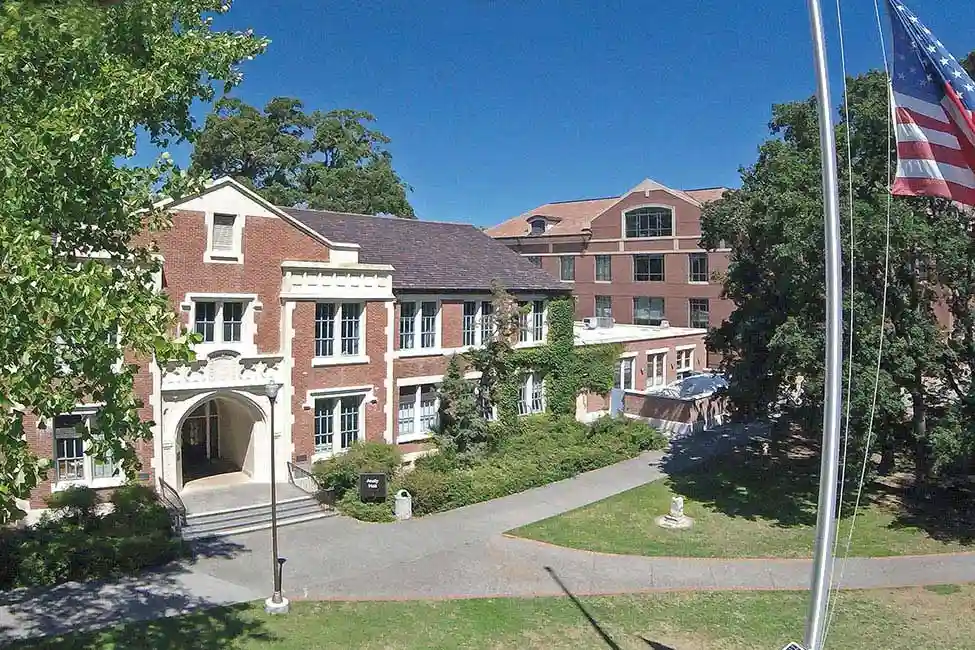What Should I Major in to Become an Anesthesiologist?

Careers in anesthesiology are essential and rewarding. Here’s a guide to your program choices.
Anesthesiology is a specialization in the medical field responsible for managing pain, patient sedation, and monitoring vital signs during medical procedures. Careers as an anesthesiologist or anesthesiologist assistant are some of the most essential and rewarding medical professions in the industry. To those dedicated enough to study it, you’ll enjoy a long and fulfilling career.
As with many medical professions, the question becomes — what should you major in?
Top majors to become an anesthesiologist
There is no one “best” major to become an anesthesiologist as long as you complete the required pre-med coursework. However, specific programs will give you a strong foundation for medical school and cover much of the prerequisite coursework you need to take.
Biology
Biology is often considered the best major for pre-med students, but is it really? Biology students study living organisms and their processes, building their understanding of the human body’s structure and function.
As a base for anesthesiology, it would develop your understanding of human anatomy, physiology, and pharmacology. As anesthesiology has undeniable ties to pharmacology, learning how medications react based on physiology, genetic makeup, and other bodily functions is essential.
Biology isn’t necessarily the best, but it might just be the most convenient. As one of the core sciences, biology programs cover nearly every prerequisite course you must take to be eligible for medical school.
Chemistry
After biology, chemistry is the next most common pre-med major; in our opinion, it’s a more suitable option for aspiring anesthesiologists. Chemistry majors study the properties and behavior of matter, chemical processes, and their involvement in drug development and metabolism.
As mentioned earlier, anesthesiologists must have a strong knowledge of pharmacology to select the appropriate anesthetic drugs for each patient. Understanding the chemical makeup of each drug is as solid a base as any, and chemistry accomplishes that goal.
Chemistry can be a challenge to grasp, but challenging yourself will prepare you for the rigors of medical school. If you can push yourself now, your future classes and your performance on the MCAT will see improved results.
Biochemistry
Where pharmacy might focus more on the chemistry of drugs and biology on the human aspect — biochemistry combines both in ways unique to an anesthesiologist’s job.
Anesthesiologists have to think about both the chemical aspects of administering medication and the physiology of the patient they’re administering the drug to — biochemistry, in that way, helps you see the complete picture at an early stage.
Neuroscience
Neuroscience is an unconventional alternative to the other majors we’ve listed, but there are few majors more relevant to your work as an anesthesiologist. The neuroscience major teaches you about the nervous system’s structures, functions, development, and evolution.
The nervous system coordinates and regulates the body’s response to stimuli. As an external compound (drug) is administered to the patient’s body, it will affect the state of their nervous system, making it the anesthesiologist’s responsibility to monitor the regulation of the patient.
An added benefit of majoring in neuroscience is that only a few medical school candidates will have a similar application. Schools want a diverse student population, but with so many students focused on “popular” science majors, it’s hard to do so.
Prerequisite courses for pre-med students
As we mentioned earlier, regardless of their major, pre-med students must take certain courses to be eligible for medical school. Here are some of the courses you’ll generally be required to take:
- Biology Courses: Cellular Biology | Genetics | Physiology | Microbiology | Immunology | Anatomy
- Chemistry Courses: Organic Chemistry | General Chemistry | Biochemistry
- Physics: General Physics 1 and 2
- Math Courses: Calculus | Statistics | College Mathematics
- Social Science Courses: Psychology | Sociology
- English Courses: Professional Writing | Communication
At the end of the day…
There is no “best” major to become an anesthesiologist. The best way to prepare for medical school is to find a major that interests you and inspires you to try your best — once you’re in medical school, the amount of material you consume will relinquish any knowledge gap you’ve had in other subjects.
Medical schools prefer a diverse student body, so choosing a major that isn’t typical can add an extra layer of depth to your application.
We wish you the best of luck on your journey!
You might also want to check these articles:
- Applying for Admission to a U.S. Program
- How to Get Your U.S. Student Visa
- What is the difference between a Public and Private University?
- Begin Your Bachelor’s Degree at a Community College: 2 + 2 Agreements
Charles Varghese
Get matched to the best program for you
Let us know what you're looking for so we can find the best school for you.
Useful Articles
Check Out These Schools

Kalamazoo Valley Community College
$1,000—$5,000 Semester

Golden West College
$5,000—$10,000 Year


East Los Angeles College
Typical cost per Semester: $10,000 — $15,000

University of North Georgia
Typical cost per Year: $15,000—$20,000

Santa Rosa Junior College
Typical cost per Year: $10,000 — $15,000
Start your U.S. adventure with Study in the USA

Learn About U.S. education financing, housing, and more
Resources
Learn about American culture and education direct from our experts at Study in the USA. Read more












